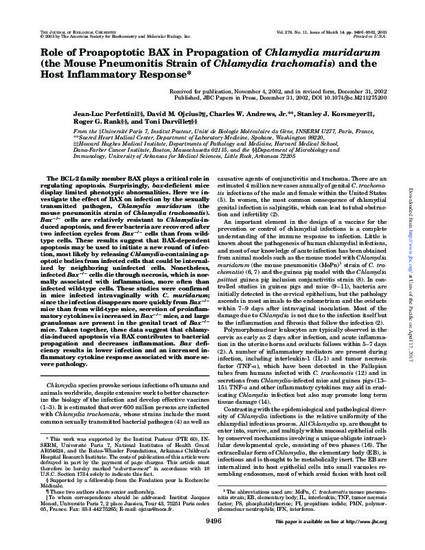
The BCL-2 family member BAX plays a critical role in regulating apoptosis. Surprisingly, bax-deficient mice display limited phenotypic abnormalities. Here we investigate the effect of BAX on infection by the sexually transmitted pathogen,Chlamydia muridarum (the mouse pneumonitis strain ofChlamydia trachomatis). Bax −/−cells are relatively resistant to Chlamydia-induced apoptosis, and fewer bacteria are recovered after two infection cycles from Bax −/− cells than from wild-type cells. These results suggest that BAX-dependent apoptosis may be used to initiate a new round of infection, most likely by releasingChlamydia-containing apoptotic bodies from infected cells that could be internalized by neighboring uninfected cells. Nonetheless, infected Bax −/− cells die through necrosis, which is normally associated with inflammation, more often than infected wild-type cells. These studies were confirmed in mice infected intravaginally with C. muridarum; since the infection disappears more quickly from Bax −/−mice than from wild-type mice, secretion of proinflammatory cytokines is increased in Bax −/− mice, and large granulomas are present in the genital tract ofBax −/− mice. Taken together, these data suggest that chlamydia-induced apoptosis via BAX contributes to bacterial propagation and decreases inflammation. Baxdeficiency results in lower infection and an increased inflammatory cytokine response associated with more severe pathology.
Available at: http://works.bepress.com/david-ojcius/213/
